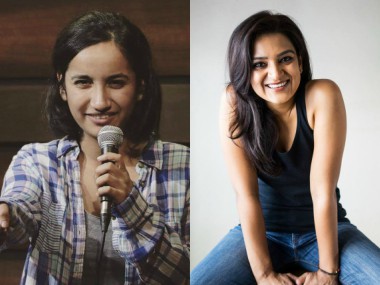There’s an old desi joke that goes: “If you want to piss your parents off, become an artist.” The fact that this is a dated joke is apparent from the burgeoning number of artistic fields in India. No longer are professions like ‘lifestyle blogger’ off-limits to young Indians; for the first time, they are able to pursue alternative professions in the arts instead of flocking to medical and engineering schools. One of the fastest-growing among these professions is that of stand-up comedian. It’s easy to understand the appeal of stand-up: the barriers to entry are low, and the field doesn’t require any financial investment. All you have to do to practice is to attend the open mics that are invariably held in any big city. Every year, the number of stand-up specials released to Amazon Video seems to rise: Indian comedians take on everything from desi culture, to creative riffs on the current political environment. Comedy collectives like All India Bakchod are creating viral video content for a generation that craves alternatives to staid network television.
Whatever the format, it seems clear that comedy is having a moment.
However, very few of these up-and-coming comics are women. If you drop into the Canvas Laugh Club in Mumbai or Summer House Café in Delhi on their open mic nights, you might be forgiven for thinking that these are events reserved for male comics. The registration spots always fill up fast, but you’d be hard pressed to find many women willing to take the stage. This is why Koval Bhatia, the creator of A Lil Anarky Films, says she hosts an all-women stand-up comedy night in the capital. “Delhi,” she says, “is seen as actively hostile to women in general. There are clearly plenty of women who want to do comedy, because we always get more applications for our open mic than there are spots available, and yet most regular open mics or lineups don’t feature a single woman. This is about creating a space where women can perform, and it’s also about supporting other women. We always get a great crowd and great line-up, so maybe other venues need to ask themselves why they don’t cater to female audiences.” Without her encouragement, many of the women telling jokes may not ever have felt emboldened to venture into these predominantly male spaces. [caption id=“attachment_4411123” align=“alignnone” width=“825”]  (Left to right) Urooj Ashfaq, Kaneez Surka and Aditi Mittal. Stand-up comedy rewards women being honest and tackling previously taboo subjects[/caption] When the line-up is restricted to women, the jokes being told take on a radically different tone. Amateur male comics often joke about the Indian bureaucracy, PC culture, or how their girlfriends shop too much. In stark contrast, female comics are using open mics as a means of feminist engagement: they satirise the hypocritical and patriarchal attitudes that men in India often have. It’s one of the few platforms that they have to be vocal (if only for five or ten minutes) without fear of consequences. In the West, comics like Amy Schumer and Chelsea Handler have long lampooned sex and gender roles – but in India, these are not permissible subjects of discussion for well-brought-up, young women. In this rigid social climate, there is still something shocking about a desi female comic discussing her sex life in public. Take Aditi Mittal, whose special Things They Wouldn’t Let Me Say was the first Netflix special by an Indian woman. Aditi is frank and funny about the standards she faces as a woman; she discusses everything from bra sizes to being censored by finger-wagging adults. “You know,” she quips, “I have come to realise that saying the words ‘sanitary napkin’ in public is akin to standing in a Hogwarts common room and saying Voldemort.” It’s a joke that resonates with every Indian woman who has angrily wondered why the shopkeeper has to wrap up the package of Whisper in brown paper, as if sanitary napkins were contraband.
This is what female stand-up comics in India are so good at: couching trenchant social commentary in seemingly ordinary jokes.
Stand-up veteran Neeti Palta jokes that Indian men don’t like her because she has that smell about her that puts them off: confidence. It’s delivered to much hilarity, but it lands perilously close to the truth: Indian women are not taught to be confident or assertive. We are told to be demure, modest, quiet, and to make ourselves as attractive as possible. Stand-up comedy, on the other hand, rewards big, brash, vulgar personalities. It rewards women being honest and tackling previously taboo subjects. Women like Kaneez Surka, Supriya Joshi, Sonali Thakker, Neetu Bharadwaj, and Urooj Ashfaq are redefining what it means to be “an Indian woman” with their fearless observational comedy. Whether or not Indian men find stand-up unladylike is no longer relevant, they say. Get used to it. They’re here, and they’re snatching the mic from you in order to tell their truths.


)
)
)
)
)
)
)
)
)



